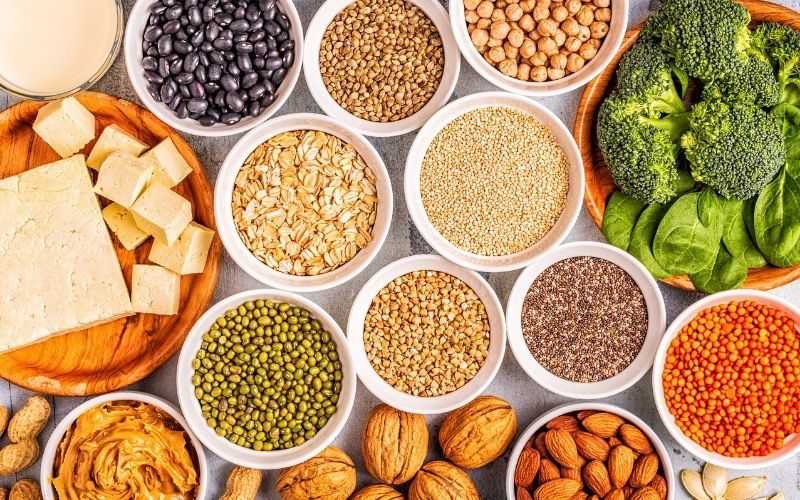
https://wellhealthorganic.com/vegetarian-protein-sources
https://wellhealthorganic.com/vegetarian-protein-sources: In recent years, there has been a noticeable shift towards vegetarianism and veganism, driven by concerns for personal health, animal welfare, and environmental sustainability. One of the common misconceptions about plant-based diets is the difficulty in obtaining an adequate amount of protein. However, with a variety of vegetarian protein sources available, it’s entirely feasible to meet your protein requirements while following a meat-free lifestyle. In this article, we’ll explore some of the best vegetarian protein sources that can help you maintain a balanced and nutritious diet.
1. Legumes:
Legumes, such as beans, lentils, and chickpeas, are excellent sources of plant-based protein. They are also rich in fiber, vitamins, and minerals, making them a staple in vegetarian diets. For instance, a cup of cooked lentils provides around 18 grams of protein, while the same amount of black beans offers approximately 15 grams. Including legumes in your meals not only boosts protein intake but also contributes to overall health and well-being.
2. Quinoa:
Quinoa is a versatile pseudo-grain that contains all nine essential amino acids, making it a complete protein source. With its nutty flavor and fluffy texture, quinoa can be used as a base for salads, stir-fries, or breakfast bowls. A single cup of cooked quinoa packs around 8 grams of protein, along with fiber, iron, and magnesium, making it a valuable addition to a vegetarian diet.
3. Tofu and Tempeh:
Tofu and tempeh are soy-based products that serve as excellent alternatives to meat. Tofu, made from soybean curds, is a versatile ingredient that can be used in various dishes, from stir-fries to smoothies. It offers about 10 grams of protein per 3.5-ounce serving. Tempeh, on the other hand, is made from fermented soybeans and provides a firmer texture and nuttier flavor compared to tofu. A similar serving size of tempeh contains approximately 19 grams of protein, along with probiotics that support gut health.
4. Nuts and Seeds:
Nuts and seeds are not only delicious snacks but also valuable sources of plant-based protein. Almonds, peanuts, chia seeds, and hemp seeds are particularly rich in protein, healthy fats, and essential nutrients. For example, a quarter-cup of almonds contains around 8 grams of protein, while two tablespoons of chia seeds offer about 4 grams. Incorporating a variety of nuts and seeds into your diet can enhance protein intake while providing numerous health benefits.
5. Dairy and Dairy Alternatives:
Dairy products, such as Greek yogurt, cottage cheese, and milk, are traditional sources of protein for vegetarians who consume dairy. Greek yogurt, in particular, stands out for its high protein content, with around 17 grams per cup. However, for those following a vegan diet or avoiding dairy for other reasons, there are plenty of dairy alternatives available, such as almond milk, soy yogurt, and cashew cheese, which also provide protein and other essential nutrients.
Conclusion:
Contrary to popular belief, obtaining sufficient protein on a vegetarian diet is entirely achievable by incorporating a variety of plant-based protein sources into your meals. Legumes, quinoa, tofu, tempeh, nuts, seeds, and dairy alternatives are just a few examples of nutrient-rich foods that can help you meet your protein requirements while enjoying a diverse and satisfying diet. By embracing these vegetarian protein sources, you can promote not only your health but also the well-being of animals and the environment.